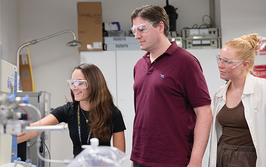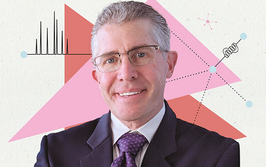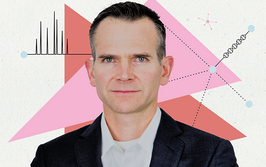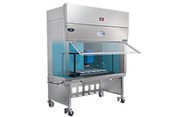Rudolf (Ruedi) Aebersold
The Power List 2015

Rudolf (Ruedi) Aebersold
Chair, Department of Biology, Institute of Molecular Systems Biology, ETH Zurich, Switzerland.
Most important lesson Understanding the importance of the research environment, specifically the colleagues around you, which includes your immediate lab group, but also the scientists in the broader environment. Great colleagues are an inspiration, judges of ideas, a resource for innovation – and they make work pleasant and fun.
Encounters with serendipity I never really had a master plan for my career. Great job opportunities came about from unexpected angles and new lab members brought ideas or skills that greatly enriched our research portfolio or drove our research in new directions. Such an occurrence was the opportunity to recruit the first group members with a computational background from the Institute for Systems Biology in Seattle. They have transformed our work, the group structure, and our research approach.
Most unexpected outcome I was trained as a cell biologist at a time when computers did not really matter in biology. So perhaps the most unexpected outcome is that some of the significant achievements of our group are algorithmic/computational. The early computational work was based on urgent needs and serendipity. We recognized the demand for new algorithms for data analysis and we were able to recruit, largely through the philosophy at the ISB, a terrific initial cadre of computational scientists into our group.
Eye on the horizon I will continue to work with my relatively large group of around 30 members for another four years, but then the labor law in Switzerland demands that I retire.
I think that my field will continue to rapidly grow in size and significance because we finally have very robust proteomic technologies to learn new biology and make headway in the translational arena. I see a broader dissemination of proteomics, outside the traditional proteomics groups and I see a significant development of computational and data management systems in the cloud, further democratizing large-scale proteomics.
In general, I think that the current tough funding climate will favor advances in analytical sciences that can demonstrate a relatively timely impact via their application to urgent problems.
Sitting Down With interview: tas.txp.to/1015/Aebersold


















